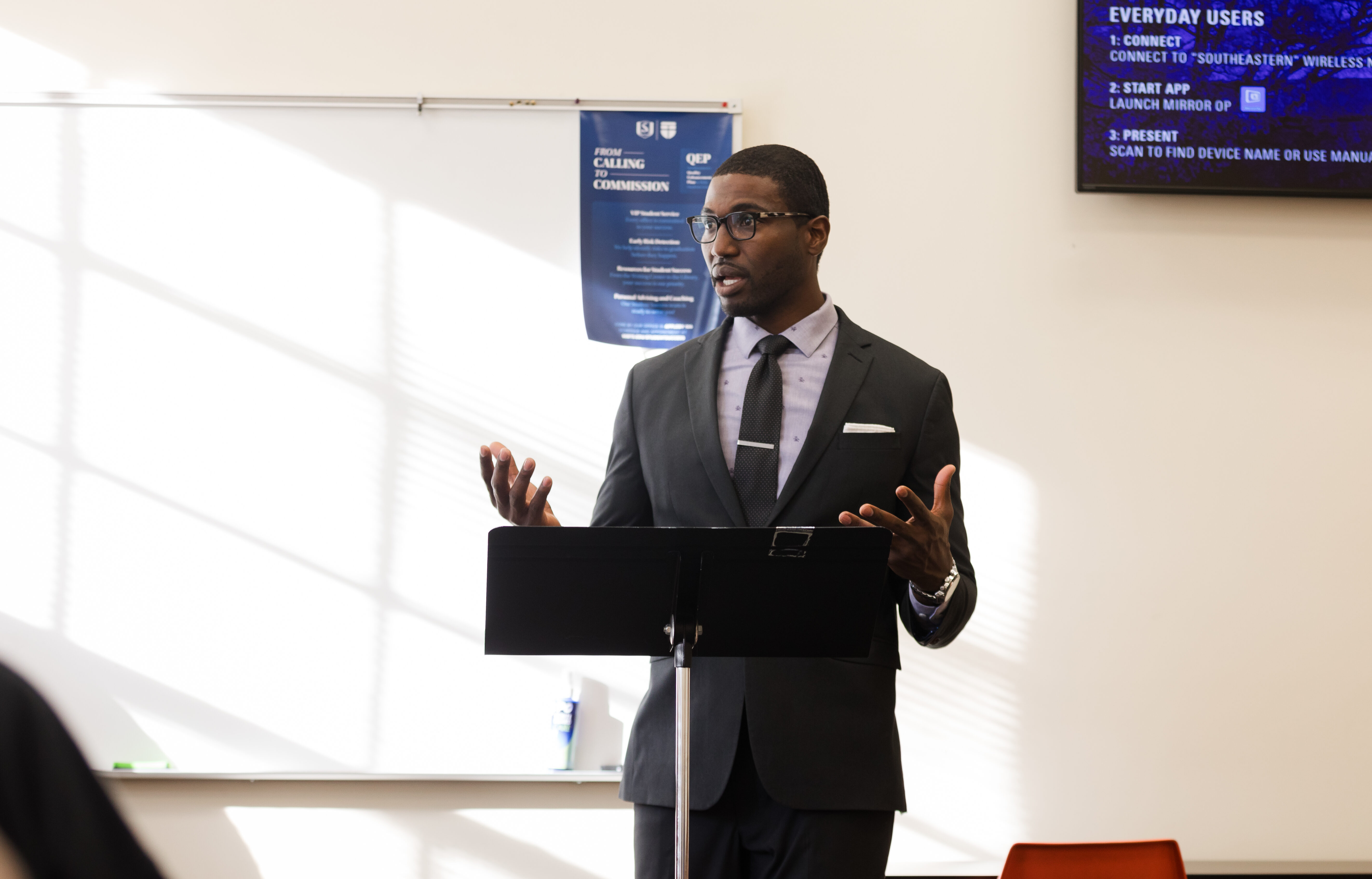Culture is Religion Made Visible
The dominating question of Bavinck’s ministry career was the “relation between Christian faith and the non-Christian religions.”[1] Like his Reformed forebears, Bavinck believed that other religions are the product of humanity’s suppression and exchange of the knowledge of God, as detailed in Romans 1:18 –32. Bavinck, however, takes it a step further and states that culture is the product of this process of suppression and exchange:
“Culture is religion made visible; it is religion actualized in the innumerable relations of daily life.”[2]
For Bavinck, culture is not a neutral entity. Instead, it is a visible expression of an invisible, religious reality. Cultural artifacts are as much representations of our worship as they are prone to becoming the very thing that we worship. Everything from TikTok to Shaboozy, from vintage clothing to Dogecoin is like a bright neon sign above our cultures saying, “Here I am to worship.”
As a result, all the functions of daily life within a culture are “actualizations” of who and what we worship. In this way, Bavinck functions much like Paul in Acts 17 who upon entering the Areopagus pointing to an altar to an unknown god and proclaimed, “Men of Athens, I perceive that in every way you are very religious. For as I passed along and observed the objects of your worship, I found also an altar with this inscription: ‘To the unknown god.’”
We are indeed very religious. And what we worship spills forward in the culture we produce and consume. For Bavinck, however, identifying culture as a product of false worship necessitates a confrontation with said false worship. As a result, he sees cultural engagement as a uniquely missional endeavor.
Cultural Engagement is Missional
“In this light it is undeniable that the preaching of the gospel cannot leave the cultural life of a people intact. On the contrary, when the message of Jesus Christ begins to penetrate the hearts of a people, the whole of the cultural life of that people will be subverted, will be cut off from its roots. Gradually a new cultural system will develop, a new outlook upon life, a new sense of duty and responsibility.”[3]
Like Paul in Athens, Bavinck sees the missionary task as necessarily involving cultural engagement. A missionary must understand the idols of his culture, then confront the foundational beliefs of that culture with the gospel. This view of culture not only informs the missionary task, which is a primary aim of Bavinck in his writings, but also informs how we approach cultural engagement.
If Bavinck is right that culture is fundamentally religious, then any cultural engagement must also be seen as a distinctly missional enterprise. We ought not treat culture as scientists, but as cross-cultural missionaries, seeking to understand the false worship at play in our context and confront it with the gospel. In this vein we are doing what Paul did, who did not point out a Greek cultural artifact just to study it, but to use it as a way to say, “What therefore you worship as unknown, this I proclaim to you.”
Conclusion
Bavinck exhibits the very title of his biography, “A Heart for the Gospel, and a Heart for the World.”[4] This personal concern for the proclamation of the gospel and the salvation of sinners led him to not only produce groundbreaking works on missions, but also on apologetics, preaching, philosophy, and New Testament theology.
Despite being often confused for his uncle Herman, J. H. Bavinck stands on his own two feet. And while his contributions to missions have been appropriately mined and applied in a variety of contexts, there is still more to the man and his work than meets the eye. While the days of Herman Bavinck studies have flourished, it is high time for the days of J. H. Bavinck studies to begin. The result may just be the creation of a new generation of public theologians whose work is fueled and focused by a heart for the gospel and a heart for the world.
If you are interested in reading more from or about J. H. Bavinck, here are some great places to start:
- The Church Between the Temple & the Mosque, by J. H. Bavinck
- Personality & Worldview, by J. H. Bavinck
- The Impact of Christianity on the Non-Christian World, by J. H. Bavinck
- The J. H. Bavinck Reader, edited by John Bolt





No comments have been added.